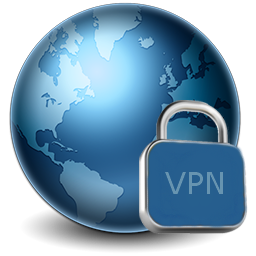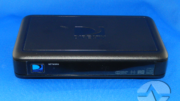Here’s a question that doesn’t come up very often. The answer is yes, you can, but you probably shouldn’t. In order to understand why, you need to look at all the pieces of the question.
What is a VPN?
VPN stands for virtual private network. It’s a technology that has been around for decades. Normal internet traffic is handled by your local computer equipment. Traffic goes through your router and the router determines if it needs to go out to the internet or stay local.
A VPN not only shortcuts that process but expands it. First, a secure “tunnel” is created. In this tunnel, the network traffic from your computer goes out to another device on the internet. The data coming through this connection is harder to intercept than regular internet data (which, for the record, is actually pretty easy to intercept.) That remote device welcomes the connection and provides access to local resources. The remote device acts as a router and gateway, providing all the internet services that your local equipment usually would.
Why use a VPN?
The original use of a VPN was remote computing. Millions of people work from home and need access to shared resources. Using a VPN lets telecommuters use printers and servers on the work site. There’s very little chance the connection will be hacked. Employers trust VPNs for this reason.
However, in past years there has been a different use for VPNs. Services like Netflix use geolocation to figure out where you are in the world. It’s helpful when you’re getting directions or looking for a coffee shop. However sometimes you don’t want to be found. It may be simply that you care about your privacy or you may be looking to do something a little sketchy.
When you’re connected to a VPN, geolocation services think you’re located physically wherever your VPN provider is. This lets people bypass restrictions on TV programming. For example, people outside the US often use VPNs to pretend they are in the US so they can watch shows before they are available locally. This isn’t strictly illegal but the terms and conditions of most streaming services say you can’t do it.
Why use a VPN with DIRECTV?
Well, I’ll be honest — there’s no good reason to do this. You might think that if you use a VPN with DIRECTV satellite you will be able to get local channels from another city. That won’t work because the signals for different cities are on spot beams that can’t be received outside their intended areas.
You might think it could help you see blacked-out sports programming. It might in some cases but in most cases the blackout location is determined by your service address, not pulled from the internet. If the internet were required to check for blackouts, then you could fool the system by just disconnecting the internet.
Honestly it’s not even that easy to use a VPN with DIRECTV. You can’t install a VPN client on the box, so you would need to either use a VPN service that gives you an IP address for a router or put something into your home router to direct the traffic properly.
Having tried this, I can tell you I got no benefit from it and it just slowed down my receiver.
What about the DIRECTV App?
You can put a VPN on your phone or tablet and use the DIRECTV App. I’ve had mixed results here. Most of the time it seemed to block all programming but sometimes it just didn’t make a difference.
So bottom line folks, don’t try to use a VPN with your DIRECTV equipment. It’s a waste of time and not likely to do anything good.





